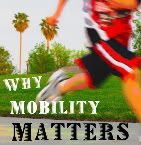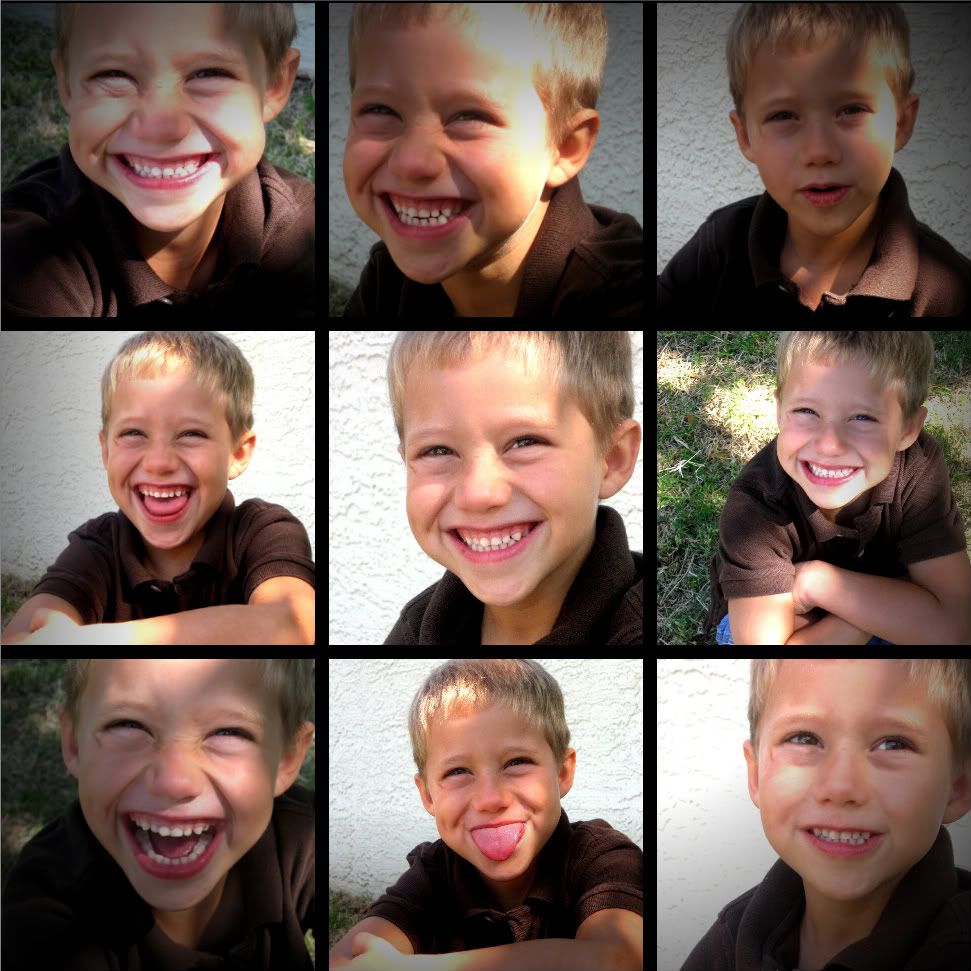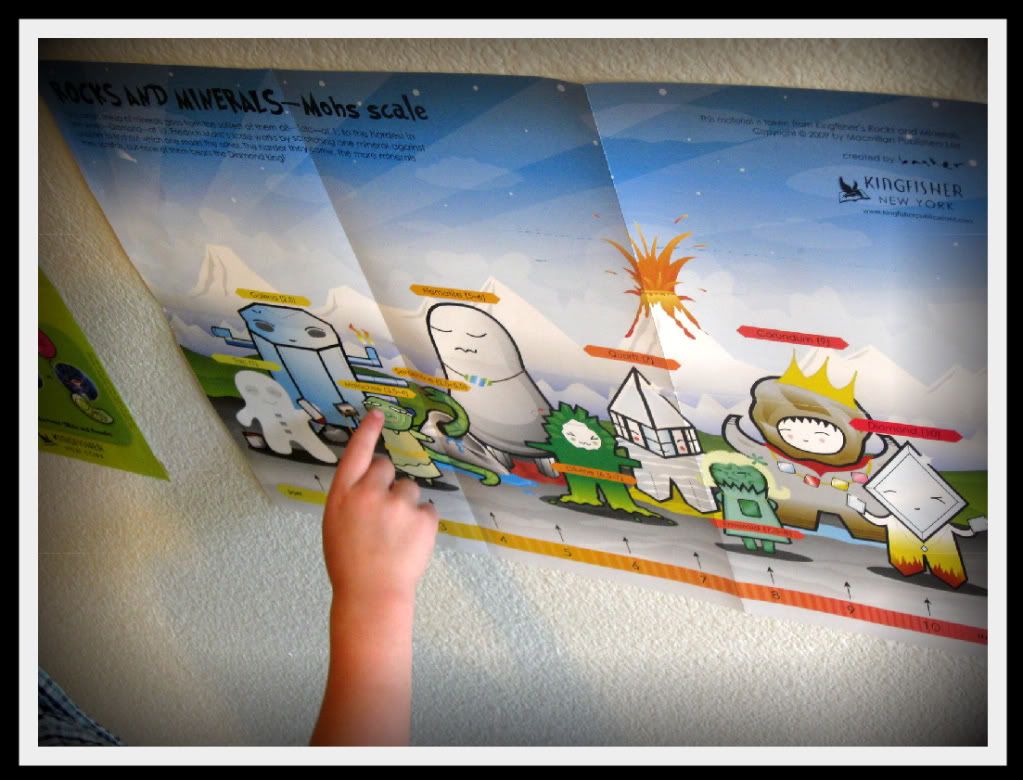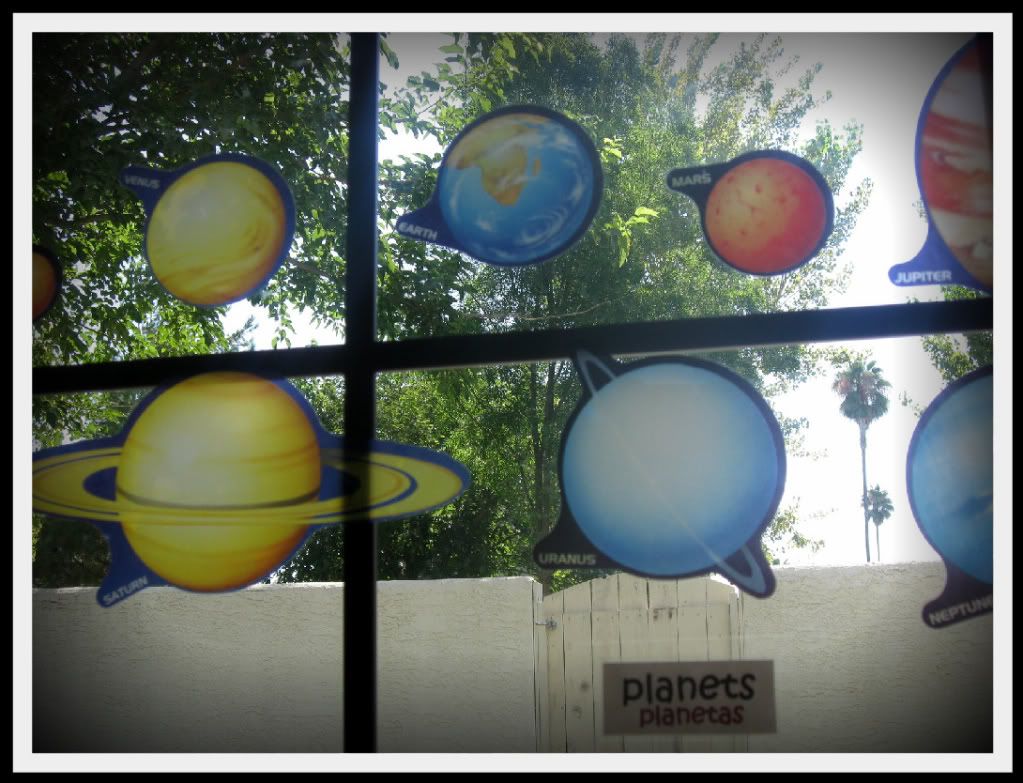 |
| Measuring the "size" of the moon in relation to a small paper circle |
Remember
earlier this year when we had a fun encounter finding out why the moon looked huge, orange, and bright on a particular night? (
gotta love Google)
Well earlier this week was another one of those nights and, believe it or not, (
ok, so it's not so hard to believe) as I was driving home from a training and saw this awesome-looking moon, I could not
wait to get home and show Hunter. I was literally itching in my seat, ecstatic about showing him.
By the time I did get home, the moon wasn't quite as orange but still nonetheless bright and "big" looking, so we ran outside with some school supplies and had a little fun learning about
size constancy.
As mentioned in my
previous post, the moon doesn't actually "look" bigger or
is bigger at certain times than at others, but rather our brain is just playing tricks on us - it's an optical illusion.
We drew a very small circle with a compass, cut it out, and held it in front of us until it was the "same size" as the moon (
at least to our eyes, of course).
Taking the same circle cut-out, we laid down on our backs and held the circle up towards the sky.
When that same-sized moon is up so far in the sky, we said
, it looks further away, and bigger. But when it is down "next to" the trees and houses, it appears bigger.
Our brain is playing a trick on us, telling us that the moon "should" be bigger, since it appears to be as big as a house when it is near the horizon, but when we look at it up there, it looks like a far-away dot. It is really the same size no matter what.
I think this actually started to hit home for the kid because, when we first went out there, he, in all his excitement, started running towards the moon, saying that the moon was "closer" and that is why it is bigger, of course!
The idea that it was still very far away and that his brain was just playing tricks on him did seem to get him excited. This is also something we have discussed a lot in our
drawing program: to really look at what you
see, not what you "think" you see. It was fun to relate it and expand on it in other areas, such as this science phenomena.
This was followed by a stop in his new science journal to document the procedure (
write about what we did and what we learned) and draw a picture. Using the same cut-out "moons", actually.
And since he loves to draw, this little journal will serve as a nice "memory tickler" when we come back to this page.
If I can just convince him not to rip out the drawing and hang it up in his room.
"In his days shall the righteous flourish; and abundance of peace so long as the moon endureth."
Psalm 72:7
Hunter is 5 years, 5 months old


























